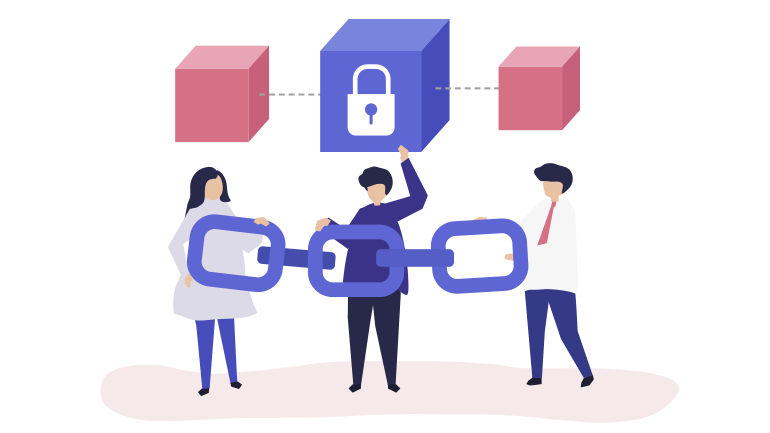Wondering how to protect your privacy, preserve your wealth or manage your family’s assets? Here, experts tackle all of your pressing questions.
Right Now Is the Best Worst Time for Estate Planning—How to Take Advantage

It wasn’t the most cheerful breakfast conversation, but it was an important one. “Mom,” one of my three kids asked while slathering jam on my latest attempt at sourdough bread. “What would happen to us if both you and Dad get COVID?”
I assured my kids that we’ll probably be fine. Besides, we have a will that indicates who would take care of them if the worst did happen. But the question stuck with me. Do we really have everything we should have in order?
We don’t, according to estate planning attorneys. A will is good, but it’s not the No. 1 document to have on hand in case of emergency, said estate attorney Bonnie Landles-Dowling, of law firm Keegin Harrison. Read more.
How to Protect Your Privacy—and Your Money—With Smart Cybersecurity Practices

If you’re lucky, your only brush with online crime has been a notification that your social security number was involved in a large-scale hack. Or maybe you got a call from your credit card company about some fishy charges, which the card company reversed.
But others have not been so lucky. Ask the Oregon widower who lost $200,000 to a romance scam, a con where a criminal uses a stolen identity to court the victim online, sometimes for months, before asking for money. Or the employees who accidentally allowed their networks to get infected with ransomware — cyberattacks where hackers freeze up systems and demand payment to release them — costing municipalities hundreds of thousands of dollars and some companies millions.
With retirement accounts, mortgages, credit cards and pretty much every aspect of our financial lives now accessible online, practicing cybersecurity is now at least as important as locking your front door. Criminals are well aware that online is where the money is. Reports to the FBI of financial losses due to cybercrime have more than tripled in the past four years, to $3.5 billion.
Fortunately, you don’t have to depend on luck to protect your money and privacy online. And you don’t have to be a computer expert, either. Here are some cybersecurity measures that anyone can take to stay safe online. Read more.
What You Need to Know About Preserving Your Wealth

You’ve probably heard the saying, “From shirtsleeves to shirtsleeves in three generations.” The old adage is a pithy commentary on how difficult it is to pass wealth from one generation to the next.
“The first generation makes the money, the second generation ‘caretakes’ it and the third generation spends it,” says Patrick Renn, founder and president of The Renn Wealth Management Group and author of “Finding Your Money’s Greater Purpose: How to Make Your Legacy Count.”
Transferring wealth may indeed be more difficult than amassing it in the first place. But, if you’ve worked hard to create wealth for your family, you no doubt want to leave a lasting legacy. Sure, you can use tools like trusts and gifting to distribute funds to children and grandchildren and to manage the tax ramifications. Still, how can you help your heirs avoid the “shirtsleeves-to-shirtsleeves” risk? Read more.
Do You Need a Family Office? There’s Never Been a More Critical Time to Manage Your Family’s Assets

Technically, a “family office” is a concept recommended for Ultra High Net Wealth (UHNW) families. One generation amasses so much wealth — often from a business they founded — that they want or need independent full-time experts to help them manage, invest, transfer and/or donate it. Used wisely, a family office also facilitates important financial discussions and education across generations. Because UHNW parents find it as difficult to discuss money with their kids as all others do, the experts help them frame and discuss the issues and their values, as well as facilitate transactions and record-keeping.
Whether or not your net worth puts you in the UHNW category though, if you have benefited financially during this pandemic — when the stock market, private equity and real estate outside of dense urban areas have risen dramatically even as our federal government took on debt that is the equivalent of our annual GDP — you can and will benefit from organizing your financial affairs as though you have a family office. Read more.
With Unprecedented Need Come Exceptional Tax Benefits for Giving in 2020—How to Maximize Your Donations

Many of us may have been distracted from philanthropy in the pandemic-bred chaos of 2020. Yet far from taking a holiday, need is greater than ever, with organizations from food banks to disaster recovery efforts to bail funds seeing greater demand for their services. As the year draws to a close, it’s time to take stock of how much we can give and select the most advantageous methods for giving.
The past few years have registered record levels of charitable giving by Americans, with $450 billion donated in 2019, according to Giving USA, which publishes an annual report of philanthropy in the U.S. based on research by the Indiana University Lilly Family School of Philanthropy. Read more.
Beating COVID Investment Paralysis: Portfolio Tips From Top Wealth Managers

Alongside the anguish of families losing loved ones to the COVID-19 pandemic runs a swift and swelling river of financial distress. A decade of job growth was wiped out in a matter of weeks. Retail sales plunged more steeply than ever recorded. Oil prices briefly went negative. The International Monetary Fund estimates that the “Great Lockdown,” while necessary, will shrink the global economy by 3 percent in 2020, a reversal of its previous prediction of 3.3 percent growth. And every time news breaks, the market gyrates.
It’s perfectly understandable that you’d rather bake a cake — or even clean behind the refrigerator — right now than lay an eye on your portfolio. Even worse than ignoring your investments, you might be tempted to liquidate that portfolio and hide the proceeds under the floorboards, Great Depression style.
But, turning a blind eye or panic selling would both be a big mistake right now. Although the timeline is uncertain, the COVID recession will end eventually, and when it does, you want to be positioned to take advantage of economic growth once again. Read more.
Interest Rates Are Down: Is It Time to Refinance or Shop For a Vacation Home?

With interest rates falling, some people are wondering if it’s time to shop for a vacation home to escape to. Others are daydreaming of remodeling or expanding the rooms whose problems have suddenly become so apparent, with the help of a cash-out refinance. Or maybe you just want to lock in a lower rate to reduce your monthly mortgage payment.
Is it even possible to make financial moves like this during the COVID crisis?
The answer is yes, according to experts; it’s all possible, if you have the patience to wait through extra delays. Read more.
The Future of Sustainable Investing Webinar: How to Reduce Your Carbon Footprint While Growing Your Portfolio

Catch the recording of this recent round table discussion with sustainable investing industry experts Patrick Costello from Green River Financial, Erin Gray of Green Century Funds, Emily Lee from Impax World Funds, and Andy Behar from the nonprofit As You Sow, about the new economy, divesting from fossil fuels, gender lens investing and much more.
In this workshop, you will learn:
- The New Economy – Benefitting from the Low-Carbon Investing Trend
- Divesting from Fossil Fuel stocks without Sacrificing Performance
- Gender Lens Investing – Correlation to Investor Success
Watch here.
More from Marin:
- An Interior Designer Explains How to Support Local Artisans During the Pandemic (And Shares Some of Her Favorites)
- Inside the Minds of MacArthur ‘Genius’ Grant Winners Monika Schleier-Smith and Forrest Stuart
- Chicago Has a Problem With Gun Violence, Arne Duncan Has a Solution: How Chicago CRED Is Working With Shooters to Stop the Shootings


